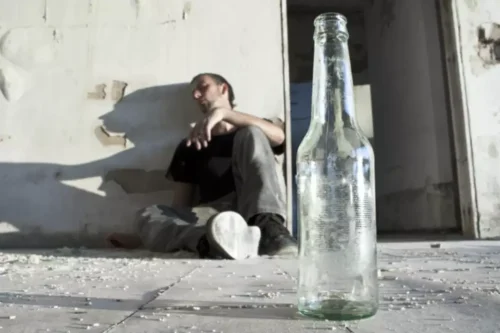Treatment for Alcohol Problems: Finding and Getting Help National Institute on Alcohol Abuse and Alcoholism NIAAA

Some people may relapse, or drink alcohol again, to relieve the symptoms. It’s difficult to predict who will and who won’t experience alcohol withdrawal — and how severe it will be. Go to the nearest emergency room or call 911 (or your local emergency service number) if you or a loved one has any concerning symptoms of alcohol withdrawal. https://ecosoberhouse.com/ Alcohol withdrawal can range from very mild symptoms to a severe form, known as delirium tremens. If your doctor thinks you might be going through alcohol withdrawal, they’ll ask you questions about your drinking history and how recently you stopped. They’ll want to know if you’ve ever gone through withdrawal before.
- While some of these changes can be uncomfortable for some time, they will eventually begin to improve the longer you abstain from alcohol use.
- Patients presenting with alcohol withdrawal syndrome should receive thiamine and folate supplementation as they are often nutritionally deficient.
- Letting others know about your choice to stop drinking may help motivate you to stick with your decision.
- Also, your risk of developing cardiovascular disease will start to decrease.
- 12-step facilitation therapy is an engagement strategy used in counseling sessions to increase an individual’s active involvement in 12-step-based mutual-support groups.
What are the symptoms of alcohol withdrawal?
There are many resources available to help, including peer support groups, counseling, therapy, and inpatient rehabilitation. A person should seek help if they notice that they or someone they love has symptoms of alcohol use disorder. Seeking help can be challenging for the person who is struggling with addiction. Loved ones and friends can help by letting the person know that they are not alone in their struggle. When a person is ready to quit drinking, they should consider seeking professional help to reduce the intensity of the symptoms.
What Is Alcohol Detox?

Each of these fee-based tools has a research base that shows its potential to help people cut down or quit drinking. Setbacks can be common, so you will want to know how they are addressed. For more information on a return to drinking, see An Ongoing Process.
Phone, Video, or Live-Chat Support

The time it takes to detox depends on a few factors, including how much you drink, how long you’ve been drinking, and whether you’ve experienced alcohol withdrawal before. In some cases, a person may choose to reduce their alcohol consumption gradually over several weeks. In these Alcohol Detox cases, a person should work with a doctor or healthcare provider to develop a schedule that they can follow safely to decrease dependency. Finally, it is important to note that, in certain cases, a person could experience life threatening symptoms due to alcohol withdrawal.
Gradually Taper Your Alcohol Intake
These support groups require no commitment from attendees, and you can attend meetings online. Start a new hobby or plan a project to keep your mind off cravings and triggers. Ultimately, receiving treatment can improve your chances of success. If you’re thinking about suicide, are worried about a friend or loved one, or would like emotional support, the Lifeline network is available 24/7 across the United States. Overcoming AUD is an ongoing process—one that can include setbacks. You will want to understand what will be asked of you in order to decide what treatment best suits your needs.

- This stage typically starts 3–5 years after you’ve stopped drinking.
- The good news is that no matter how severe the problem may seem, most people with AUD can benefit from some form of treatment.
- People with alcohol use disorder should be monitored by a medical professional when withdrawing from alcohol.
- Medications can also deter drinking during times when individuals may be at greater risk for a return to drinking (e.g., divorce, death of a family member).
- By this point, most physical withdrawal symptoms should have subsided and you should start to feel less anxious and more positive.
- However, try not to have too many firm expectations, as symptoms can continue for multiple weeks in some people.
What Causes Alcohol Withdrawal Symptoms?
- Keep a list of emergency phone numbers on hand that includes contact info for your doctor, the police, a nearby hospital, and someone you trust.
- If you struggle to sleep, talk to your doctor about solutions that might help.
- However, when alcohol makes up part of your typical routine, drinking can become something of an automatic response, especially when you feel stressed or overwhelmed.
- Your provider may also be able to suggest an online self-guided program.
- Studies show that strong family support through family therapy increases the chances of maintaining abstinence (not drinking) compared with people going to individual counseling.
